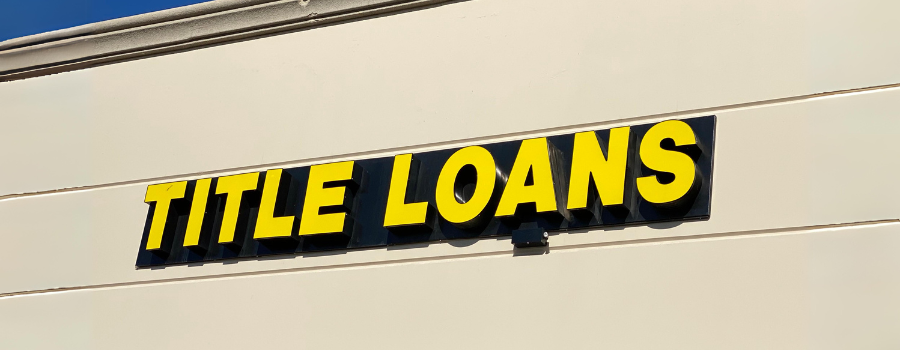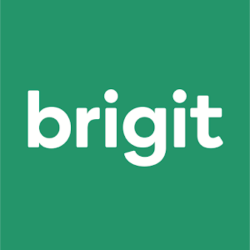Title Loans Explored: Your Guide to Borrowing Against Your Car
A Safer Route to Quick Cash: Exploring Title Loan Alternatives
Facing a financial crunch often leads to considering a title loan as a quick cash solution. The lure of using your car for immediate funds is strong, but the risks are significant. High interest rates and the danger of losing your vehicle make title loans a precarious choice.
If you’re concerned about these risks, it might be time to look at a safer alternative. Personal loans offer a more secure option. They come with clearer terms and manageable interest rates, and crucially, they don’t put your personal assets at stake.
Choosing a personal loan over a title loan can be a wise decision to avoid unnecessary financial risk. It’s a step towards securing the funds you need without the worry of losing something as valuable as your car. Consider the benefits of a personal loan as a less risky way to meet your financial needs.
 BadCreditLoans.com | Quick Loans up to $10,000
»
|
 iCash Loans | Get a Loan Today
»
|
 Wells Fargo Reflect® | 0% APR for 21months (Credit Score 670+)
»
|
 Brigit | Build Your Credit and Your Savings
»
|
Unlocking the Mystery: Essential Requirements for a Title Loan
When you’re considering a title loan, understanding the essential requirements is crucial. This section breaks down what you need to know to qualify for a title loan, ensuring you’re fully prepared before you apply.
To be eligible for a title loan, there are several key requirements:
- Ownership Proof: You must have a clear, lien-free title to your car. This means no other loans or judgments against the vehicle.
- Vehicle Value: The amount you can borrow largely depends on the value of your car. Lenders typically evaluate the car’s condition, make, model, and mileage.
- Regular Income: Proof of regular income is often required to ensure you can repay the loan. This could be from employment, self-employment, or even social security or disability benefits.
- Valid ID: A government-issued identification, such as a driver’s license, is necessary for identity verification.
- Age Requirement: You must be at least 18 years old to enter into a title loan contract.
These are the basics, but some lenders might have additional requirements. Always check with the lender for their specific criteria to make sure you’re fully equipped for the application process. Understanding these essentials helps you evaluate if a title loan is feasible for you and prepares you for the application steps ahead.
How Much Can I Borrow Against a Car?
Understanding your title loan amount is based on your car’s market value. The value considers factors like make, model, year, and condition. Lenders usually offer 25% to 50% of the car’s value. So, for a car worth $10,000, you might get a loan between $2,500 and $5,000.
Keep in mind that this amount can vary due to state regulations. It’s also vital to consider your ability to repay. Ensure you borrow an amount that aligns with your financial capacity to avoid future financial strain.
The Hidden Pitfalls of Title Loans
Title loans might seem like a quick fix for your financial needs, but it’s essential to be aware of the potential downsides. Understanding these risks can help you make a more informed decision.
The key disadvantages of title loans include:
- High Interest Rates: Title loans often come with exorbitant interest rates, significantly higher than most traditional loans. These rates can quickly escalate the total amount you owe.
- Short Repayment Terms: Typically, title loans have to be repaid within a short period, sometimes as quickly as 30 days. This short repayment window can be challenging for many borrowers.
- Risk of Losing Your Vehicle: If you fail to repay the loan, the lender can repossess your vehicle. Losing your car can not only be inconvenient but also impact your ability to work or manage daily responsibilities.
- Debt Cycle Risk: The combination of high interest rates and short repayment terms can trap borrowers in a cycle of debt. Some find themselves taking out additional loans to repay the original title loan.
Before opting for a title loan, weigh these risks against your immediate financial needs. Sometimes, the long-term financial implications can outweigh the short-term relief provided by the loan. Consider exploring alternative financial solutions that might be less risky and more manageable in the long run.
Do Title Loans Affect Your Credit?
Understanding the impact of a title loan on your credit score is crucial for financial planning. Title loans are typically not reported to credit bureaus since most lenders don’t require a credit check for approval. Therefore, obtaining a title loan won’t directly affect your credit score, nor will your repayments influence it.
However, if you default on the loan and your vehicle is repossessed, this could be reported and negatively impact your credit score. Additionally, if the defaulted loan is transferred to a collection agency, this might also be reported and can significantly harm your credit.
It’s important to consider these potential indirect impacts on your credit when deciding on a title loan. Being aware of all possible outcomes helps you make an informed financial decision.
Understanding Your Options: Auto Equity Loans vs. Title Loans
When considering loans that leverage your vehicle, it’s vital to know the differences between auto equity loans and title loans. Each option caters to different financial situations and comes with its own set of terms.
Auto Equity Loans:
- Based on Vehicle Equity: This loan type considers the equity you have in your car, which is the value of the car minus any outstanding balance on it.
- Credit Check Required: Lenders typically check your credit, as loan terms and eligibility can depend on your credit history and the equity in your vehicle.
- Ongoing Car Payments: It’s possible to get an auto equity loan even if you haven’t fully paid off your car, as long as there’s sufficient equity.
Title Loans:
- Vehicle as Collateral: For a title loan, you must own your car outright. The loan amount is based on the car’s value, without considering any existing car payments.
- No Credit Check: These loans are accessible to those with poor or no credit but often come with higher interest rates.
- Shorter Repayment Terms: Title loans typically have quicker repayment schedules compared to auto equity loans.
By understanding these distinctions, you can better assess which loan type is more suitable for your financial circumstances. Consider the impact on your credit, the loan terms, and how much you can borrow before deciding. Remember, both options involve using your vehicle as collateral, so choosing the right one is key to managing your financial health effectively.
Navigating the Waters: Understanding Title Loan Rates
Understanding title loan rates is crucial due to their high nature. Typically, title loans feature annual percentage rates (APRs) ranging from approximately 100% to 300%. This rate is significantly higher compared to traditional loans.
The high interest means the total amount you need to repay can escalate quickly, making the loan more costly over time. When considering a title loan, it’s important to compare rates from different lenders and calculate the full repayment cost, including all interest charges.
Remember, opting for a loan with a lower interest rate can substantially reduce the overall cost of the loan.
Exploring Alternatives to Title Loans: Balancing Loans and Income Boosters
When you’re looking for quick financial relief, understanding the full range of options, especially alternatives to title loans, is crucial. These alternatives include various loan types and income-boosting strategies.
Loan Options:
- Personal Loans: Generally offer lower interest rates and longer repayment terms, ideal for those with good credit.
- Credit Card Cash Advances: Provide immediate access but come with high interest rates and fees.
- Payday Loans: Offer quick funds but are known for high costs.
- Peer-to-Peer Loans: Feature flexible terms with rates based on your credit profile.
- Home Equity Loans: Use home equity for loans with lower interest rates, but be mindful of the foreclosure risk.
- HELOC (Home Equity Line of Credit): Provides flexible access to funds with variable interest rates, ideal for ongoing expenses.
- 401(k) Loans: Borrow from retirement savings with lower interest rates without a credit check. Remember, there’s a potential impact on retirement funds.
- New Credit Cards with 0% Introductory Offers: Suitable for short-term expenses, offering a period without interest. Be aware of the rates after the introductory period.
- Pawn shop Loans: Provide immediate cash with valuables as collateral. They are quicker and less credit-dependent but come with the risk of losing your items.
 BadCreditLoans.com | Quick Loans up to $10,000
»
|
 iCash Loans | Get a Loan Today
»
|
 Brigit | Build Your Credit and Your Savings
»
|
 Wells Fargo Reflect® | 0% APR for 21months (Credit Score 670+)
»
|
Income Strategies Without Debt:
- Borrowing from Family and Friends: This could offer low- or no-interest loans but may impact personal relationships.
- Selling Personal Items: An effective way to raise funds without taking on debt, though it may require time and effort.
- Seeking Community Assistance: Look into non-repayable financial support from charities or government programs.
- Part-time Work or Side Gigs: Generate additional income through freelance work, side jobs, or gig economy opportunities.
Evaluating both your immediate financial needs and your ability to repay is essential in choosing the right option. Whether it’s a loan tailored to your situation or an alternative income source, careful consideration will help maintain your financial stability while addressing your current needs.
Conclusion: Navigating Title Loans and Their Alternatives
In conclusion, while title loans offer a quick financial solution, they carry significant risks and high costs. It’s essential to carefully consider these drawbacks, such as potentially exorbitant interest rates and the risk of vehicle loss, against your immediate financial needs.
Often, safer alternatives like personal loans, credit card advances, or borrowing from family might be more sustainable choices. Exploring these options, along with ways to generate additional income, can provide the necessary financial support without the heavy burdens of title loans.
Making an informed decision that balances your immediate needs with long-term financial health is key to maintaining financial stability and peace of mind.
Secure Your Financial Future
If you’re considering alternatives to a title loan, applying for a personal loan might be your best option. We offer tailored loan solutions to fit your specific financial needs.
Moving Forward with Confidence
The financial decisions you make today shape your future. For expert advice tailored to your unique needs, consult a financial advisor. Their guidance can help you make well-informed choices.
Your experiences with loans could enlighten others. Consider sharing your story to assist those facing similar decisions.
Need Emergency Funding? Discover Your Options
- HELOC Loans Unlocked: How Do They Work?
- Borrow from Retirement With A 401k Loan: A Comprehensive Guide
- Title Loans Explored: Your Guide to Borrowing Against Your Car
- Mastering Credit Cards: Types, Benefits, and Strategic Use
- Credit Card Cash Advances: Emergency Funds When You Need Them Most
- Home Equity Loans Explained: Unlocking Your Home’s Financial Power
- Pawn Shop Loans Unlocked: Your Ultimate Guide to Quick Cash and Smart Borrowing
- Peer-to-Peer Lending for Bad Credit: Unlocking Financial Opportunities
- Drive Away Happy: Your Complete Guide to Auto Loans and Buying a Car
- Unlock Your Dream Home: A Stress-Free Guide to Understanding Mortgages




